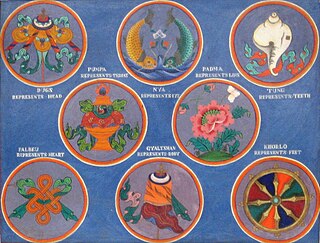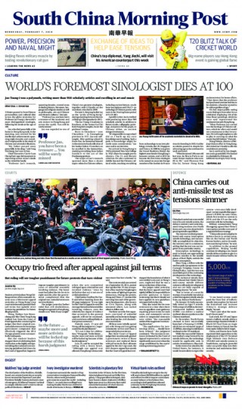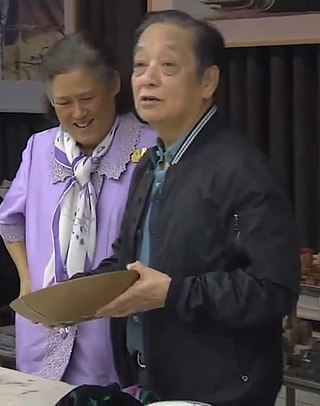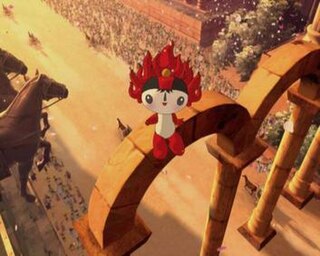
The 2008 Summer Olympics (2008年夏季奥运会), officially the Games of the XXIX Olympiad (第二十九届夏季奥林匹克运动会) and officially branded as Beijing 2008 (北京2008), were an international multisport event held from 8 to 24 August 2008, in Beijing, China. A total of 10,942 athletes from 204 National Olympic Committees (NOCs) competed in 28 sports and 302 events, one event more than those scheduled for the 2004 Summer Olympics. This was the first time China had hosted the Olympic Games, and the third time the Summer Olympic Games had been held in East Asia, following the 1964 Olympics in Tokyo, Japan, and the 1988 Olympics in Seoul, South Korea. These were also the second Summer Olympic Games to be held in a communist state, the first being the 1980 Summer Olympics in the Soviet Union.

The 2008 Summer Paralympic Games, the 13th Summer Paralympic Games, took place in Beijing, China from September 6 to 17, 2008. As with the 2008 Summer Olympics, equestrian events were held in Hong Kong and sailing events in Qingdao. It was first time the new Paralympic logo featured in the Summer Paralympics since its rebranding after the 2004 Summer Paralympics.

The Ashtamangala is the sacred set of Eight Auspicious Signs featured in a number of Indian religions such as Hinduism, Jainism, and Buddhism. The symbols or "symbolic attributes" are yidam and teaching tools. Not only do these attributes point to qualities of enlightened mindstream, but they are the investiture that ornaments these enlightened "qualities". Many cultural enumerations and variations of the Ashtamangala are extant.

Jingjing and Chacha, a pun on the Chinese word for "police", are the cartoon mascots of the Internet Surveillance Division of the Public Security Bureau in Shenzhen, People's Republic of China. Debuting on January 22, 2006, they are used to, amongst other things, inform Chinese Internet users what is and is not legal to consult or write on the Chinese Internet. According to the director of the Shenzhen Internet police, "[we published] the image of Internet Police in the form of a cartoon [...] to let all internet users know that the Internet is not a place beyond of law [and that] the Internet Police will maintain order in all online behavior."

The South China Morning Post (SCMP), with its Sunday edition, the Sunday Morning Post, is a Hong Kong-based English-language newspaper owned by Alibaba Group. Founded in 1903 by Tse Tsan-tai and Alfred Cunningham, it has remained Hong Kong's newspaper of record since British colonial rule. Editor-in-chief Tammy Tam succeeded Wang Xiangwei in 2016. The SCMP prints paper editions in Hong Kong and operates an online news website that is blocked in mainland China.

The Paralympic symbols are the icons, flags, and symbols used by the International Paralympic Committee to promote the Paralympic Games.

The 2008 Summer Olympics torch relay was run from March 24 until August 8, 2008, prior to the 2008 Summer Olympics, with the theme of "one world, one dream". Plans for the relay were announced on April 26, 2007, in Beijing, China. The relay, also called by the organizers as the "Journey of Harmony", lasted 129 days and carried the torch 137,000 km (85,000 mi) – the longest distance of any Olympic torch relay since the tradition was started ahead of the 1936 Summer Olympics.

The 2008 Tibetan unrest, also referred to as the 2008 Tibetan uprising in Tibetan media, was a series of protests and demonstrations over the Chinese government's treatment and persecution of Tibetans. Protests in Lhasa, the capital of Tibet, by monks and nuns on 10 March have been viewed as the start of the demonstrations. Numerous protests and demonstrations were held to commemorate the 49th anniversary of the 1959 Tibetan Uprising Day, when the 14th Dalai Lama escaped from Tibet. The protests and demonstrations spread spontaneously to a number of monasteries and throughout the Tibetan plateau, including into counties located outside the designated Tibet Autonomous Region.

The 2008 Summer Olympics torch relay route involved 21 countries where the Olympic torch was carried between its lighting in Greece in March 2008 and the Olympic opening ceremony in China's host city of Beijing in August 2008. The relay took place in four separate legs: in Greece, an international leg, in the Special Administrative Region of China, and in mainland China.

Han Meilin is a Chinese artist most recognized today for his creation of the Fuwa dolls for the 2008 Summer Olympics in Beijing.
A number of concerns and controversies surfaced before, during, and after the 2008 Summer Olympics, and which received major media coverage. Leading up to the Olympics, there were concerns about human rights in China, such that many high-profile individuals, such as politicians and celebrities, announced intentions to boycott the games to protest China's role in the Darfur conflict, and Myanmar, its stance towards Tibet, or other aspects of its human rights record. During the games in Beijing, the city was also under a high alert because of security concerns following civil unrest in Tibet and terrorist attacks by Xinjiang separatists. The levels of air pollution in Beijing also came under much scrutiny, due both to concerns about athletes' health and concerns that Beijing had failed to live up to promises it made during its Olympic bid. Foreign journalists at the games reportedly faced various restrictions to their work, limitations to internet access, and threats of physical violence. The gymnastics competition caused a major worldwide controversy during and after the games when some Chinese gymnasts were accused of being under the minimum age, but then cleared after an investigation. Other controversies surrounding the 2008 Summer Olympics included ticketing problems, displacement of Beijing residents due to construction and demolitions, and alleged persecution of individuals applying to protest.
2008 Summer Olympics marketing has been a long running campaign that began since Beijing won its bid to host the games in 2001.

The Olympic Adventures of Fuwa is a Chinese animated series portraying the 2008 Summer Olympics mascots, known as the Fuwa. The series began running on 8 August 2007. Prior to the television release, Kaku TV distributed copies of the series to foreign embassies and cities.

The 2008 Summer Paralympics opening ceremony was held at the Beijing National Stadium on September 6, 2008 just two weeks after the end of the 2008 Summer Olympics. The event was themed "One World, One Dream" and "Transcendence, Integration, Equality." The show was attended by about 91,000 to 100,000 spectators. It was approximately 3-hours in length and consisted of 6,000 performers and 4,000 disabled athletes from 148 countries.

Guo Jingjing is a retired Chinese diver, and multi-time Olympic gold medalist and world champion. Guo is tied with her partner Wu Minxia for winning the most Olympic medals (6) of any female diver and she won the 3m springboard event at five consecutive World Championships. She announced her retirement in 2011.

The 11th National Games of China were held in various cities in Shandong from October 16 to October 28, 2009. Represented were 33 sports, 43 disciplines and 362 events, including 4 winter sports which were held in Shenyang, Changchun and Qingdao between January and April 2009.
The 2008 Tibetan unrest was a series of protests and demonstrations met by excessive force, focused on the persecution of Tibetans, in the buildup to the 2008 Summer Olympics in Beijing. There was a mixture of outrage and understanding from leading figures abroad.

The International Tibet Network, established in 2000, is a global coalition of Tibet-related non-governmental organisations campaigning to end the China's occupation and human rights violations in Tibet, and restore rights to the Tibetan people. Its purpose is to maximise the effectiveness of the worldwide Tibetan Freedom Movement. The Network works to increase the capacity of individual member organisations, develops coordinated strategic campaigns, and encourages increased cooperation among organisations.

Fu Niu Lele, was the mascot of the 2008 Summer Paralympics in Beijing.
The 24th Golden Eagle Awards were held August 31, 2008, in Changsha, Hunan province. Nominees and winners are listed below, winners are in bold.
















